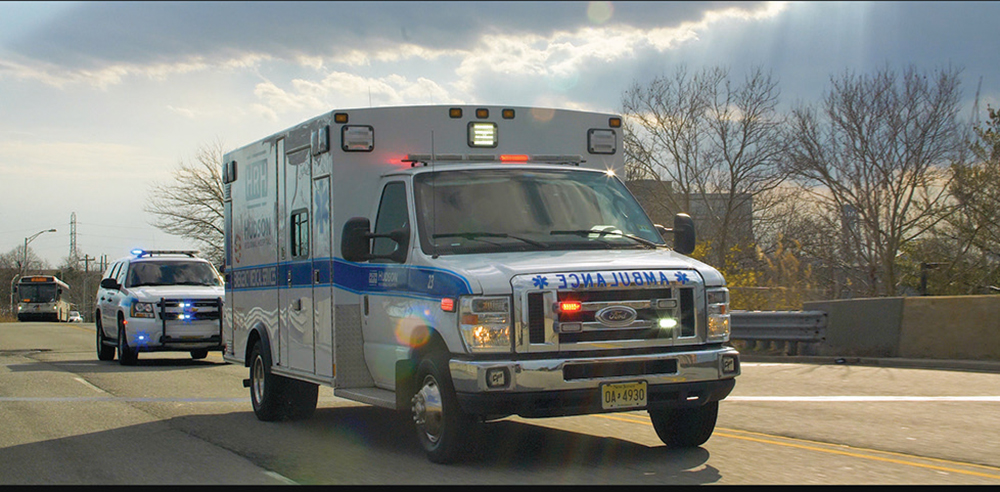
(Courtesy of HRH) It is with a heavy heart that we write this article in light of the tragic anti-Semitic attack in Pittsburgh. We extend our condolences to the victims and their families and all of Klal Yisroel, and we stand united against this senseless, brutal attack.
What happens if chas v’shalom, a tragedy should occur in our communities? What do we do? For those communities who have Hatzolah, you can be thankful for such a dedicated group of individuals who, because of their structure and dedication, can react to an emergency in minutes. George Matyjewicz, director of Community Outreach at Hudson Regional Hospital and former executive director of Hatzolah of Passaic-Clifton said: “Each year we averaged 90 seconds to reach a patient. The first man on the scene triaged and stabilized the patient until the ambulance arrived.”
Sadly, with a tragedy like in Pittsburgh, we cannot wait for help to arrive—we have to know what to do now! Security people in our communities will develop action plans for what to do in the case of a shooter. We all have to know what to do to our friend davening next to us, who was a victim of an active shooter or just had a cardiac arrest.
After the tragedy, Kristin Hyman, chief EMS, and George Matyjewicz discussed how they could help. Kristin had developed and taught training programs for HRH and local communities, and George is an active member of the Passaic-Clifton kehila. Hudson Regional Hospital has regular education programs for staff and patients who are most vulnerable in these tragedies. Expert training and sensitivity are mandatory, and they developed education programs for the three most practical courses for tragedies like this, all offered free.
Surviving an Active Shooter Event
Hands-Only CPR
Stop the Bleed.
Surviving an Active Shooter Event
While you are 700 times more likely to die in a car crash than an active shooter event, safety is about being prepared. The mantra here is “Run-Hide-Fight.” You need to know how to apply these quick actions to improve your chances of survival should you find yourself in proximity to a shooter. HRH has developed an Active Shooter program for use with staff and patients. It is critical that you learn how active shooter situations unfold, how to be situationally aware and what actions are necessary to improve your odds of survival.
Hands-Only CPR
Cardiac arrest is a leading cause of death in the US. Each year, over 420,000 out-of-hospital cardiac arrests occur in the US. And that is without a tragedy like that in Pittsburgh! When a person has a cardiac arrest, survival depends on immediately getting CPR from someone nearby. You may not be able to reach that defibrillator, and your friend just had a heart attack.
According to the AHA, 90 percent of people who suffer out-of-hospital cardiac arrests do not survive, partially because most Americans (70 percent) feel helpless to act because they don’t know how to do CPR or are afraid of hurting the victim. Immediate CPR can double or triple a person’s chance of survival during a cardiac arrest. It is incumbent on all of us to learn how to perform this vital skill for adults, children and infants.
Stop the Bleed
Uncontrolled bleeding is a major cause of preventable deaths. Approximately 40 percent of trauma-related deaths worldwide are due to bleeding or its consequences, establishing hemorrhage as the most common cause of preventable death in trauma. The Stop the Bleeding Coalition is focused on raising awareness of how, with the proper training and materials, death from bleeding can be prevented. The Bleeding Control Basic (BCon) Course is designed for individuals who have little or no medical training but who may be called upon as immediate responders to provide initial trauma care and bleeding control to a victim of traumatic injury before the arrival of emergency medical services (EMS). Remember, you are the first first responder.
Remember
We are all very nervous because of the tragedy in Pittsburgh, and we are all looking at how to protect ourselves and how to react to something as horrific as this. Too often, as time passes by, we forget the tragedy and become a little complacent in our daily lives. Remember, understanding these three key programs are valuable anytime—if your friend has a heart attack, if one of your boys falls out of a tree and cuts himself causing major blood loss or when, chas v’shalom, another crazy enters our community. Be prepared!
Hudson Regional Hospital is ready to address your medical needs and cater to your religious requirements.
For a tour of the new Hudson Regional Hospital or to meet the owner and executive staff, physicians should call George Matyjewicz at 201-392-3436 or email [email protected].
Patients can inquire about services or schedule appointments by contacting the hospital directly, either via telephone, at 201-392-3100, or email, at [email protected]. Patients facing medical emergencies should proceed directly to the emergency room. The emergency room contact number is 201-392-3210.













